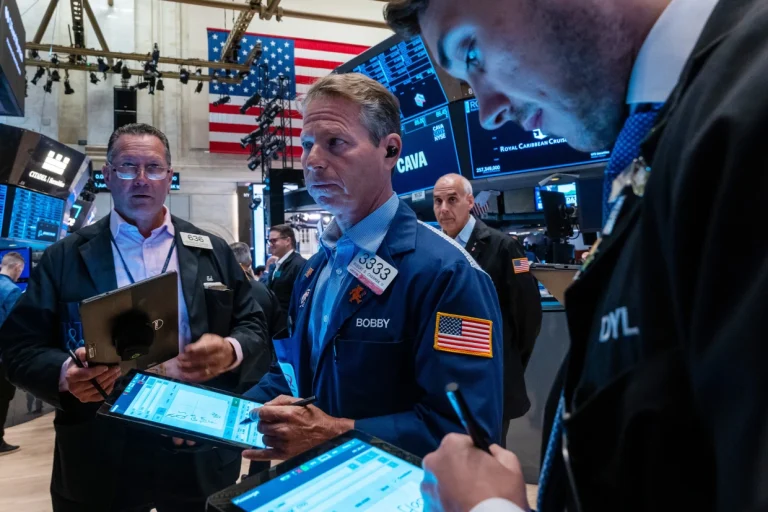Even an attempted assassination of a presidential candidate failed to disrupt U.S. stocks from reaching new record levels.
By midday Monday, just two days after a gunman wounded former President Donald Trump at a campaign rally in Pennsylvania, both the Dow Jones Industrial Average and the S&P 500 had set new highs, with the tech-heavy Nasdaq also showing gains.
Traditionally, an assassination attempt triggers selling in the market. However, today’s strong stock performance is driven by factors such as the artificial intelligence boom and recent progress in controlling inflation.
The Saturday attack marked the first instance of a presidential candidate or president being wounded in the U.S. since John Hinckley shot President Ronald Reagan in 1981. Following that incident, the Dow fell by 1.4%, according to CFRA Research.
“Unexpected events tend to prompt immediate reactions,” noted Sam Stovall, chief investment strategist at CFRA Research. “Investors often sell first and seek clarity later out of concern.” Historical data from CFRA Research shows that following 10 attempted assassinations, from Theodore Roosevelt in 1912 to George W. Bush in 2005, the Dow Jones Industrial Average typically dropped an average of 1.1% on the first trading day afterward.
However, breaking from this historical pattern, the stock market appears to be resilient to political discord and violence in 2024. Despite concerns over escalating threats and normalized attacks, the market seems buoyed by relief that the former president survived the attempt and strong underlying economic fundamentals. This disconnect between Wall Street sentiments and public sentiment has been a recurring theme since the pandemic.
Investors are also showing optimism regarding the prospects of a Trump victory. Shares of Trump Media, usually volatile, surged on Monday. With three and a half months until Election Day, the assassination attempt is seen as potentially strengthening Trump’s position, according to Greg Valliere, Chief U.S. Policy Strategist at AGF Investments.
“The equity markets are likely to favor this stimulative outlook,” Valliere wrote. “However, additional tax cuts and ongoing deficits could unsettle the bond market, and potential trade tariffs could provoke concerns if met with retaliation from China and other nations.”
In contrast, President Joe Biden’s campaign focuses on promises of higher taxes for large corporations and the wealthiest individuals, while maintaining lower taxes for those earning less than $400,000 annually.
As the weeks progress toward November, economic strength, a robust job market, decreasing inflation, and a Federal Reserve potentially poised to lower interest rates create a favorable environment for corporate profits. This has already driven stock prices higher and benefited long-term investors who have enjoyed a five-year rally in the S&P 500, which has surged by over 85%.

